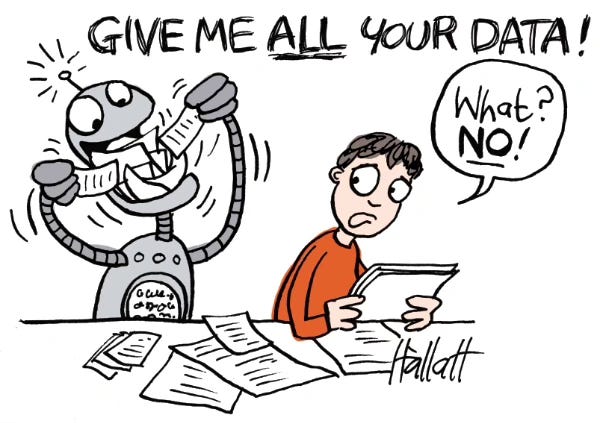Cartooning in the Age of AI #21: What We Lose When AI Does Our Thinking
AI can dull our brains and that's only one reason not to rely on it.
Cartooning wasn’t an easy way to make a living before generative AI came along.
Now we’re going to have to get smarter.
And more human.
AI Stops You Learning
After drafting this post, I read this one by Ethan Mollick, an academic who analyses the use of AI. Using AI has a very real effect on how we think.
"If you outsource your thinking to the AI instead o…



